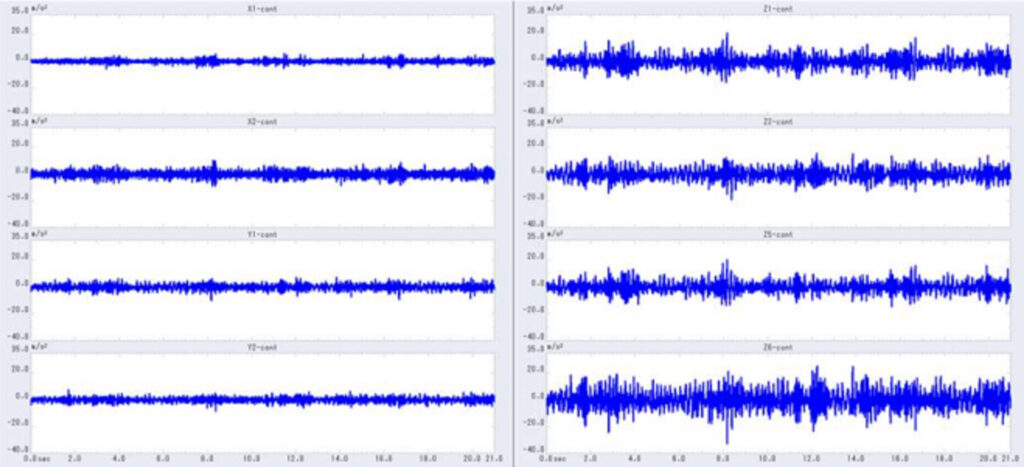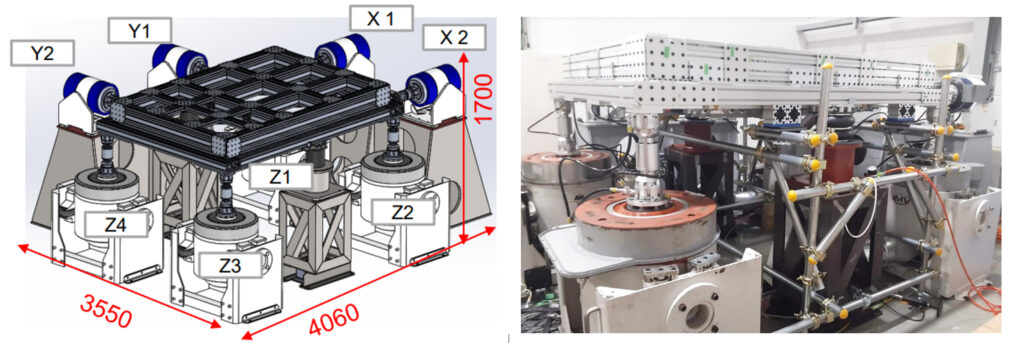Example of testing an EV car battery using a small 6-degree-of-freedom vibration system
Test overview
■ Purpose
This test system is a small 6-degree-of-freedom vibration test system newly constructed at the Advanced Technology Centre for Environmental Testing (Uenohara).
Testing will be possible at two locations, including the existing equipment already located at Osaka Test Lab.
We use tests in Osaka and Uenohara depending on the type of product being tested, offering a wide range of options in terms of delivery time and cost.
■ EUT
EV battery: approx. W 1500 x L 2100 x H 300 mm/approx. 600 kg
Test condition
Test method: Actual waveform reproduction test
Excitation direction: Simultaneous excitation in 3 directions (6DOF)
Exam time: about 100 hours
Feature
6-degree-of-freedom vibration testing system allows for more reproducible testing of real environmental loads.

Test image

Memo
Facilities used
Vibration testing system: TTS-6400-25L
Vibration controller: K2 software BMAC (Waveform creation:K2 software TRANREF)
Monitor measurement: Acceleration (8 points used as control points)
Test duration/working time
16 days including preparation and cleanup
[1st to 2nd day: Preparation, 3rd to 15th day: Test, 16th day: cleanup
p]

